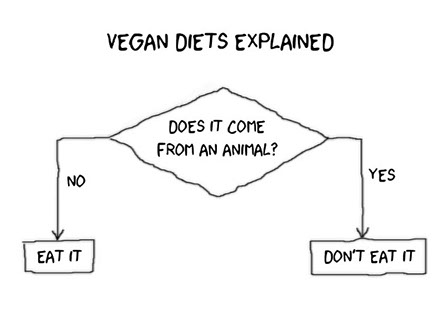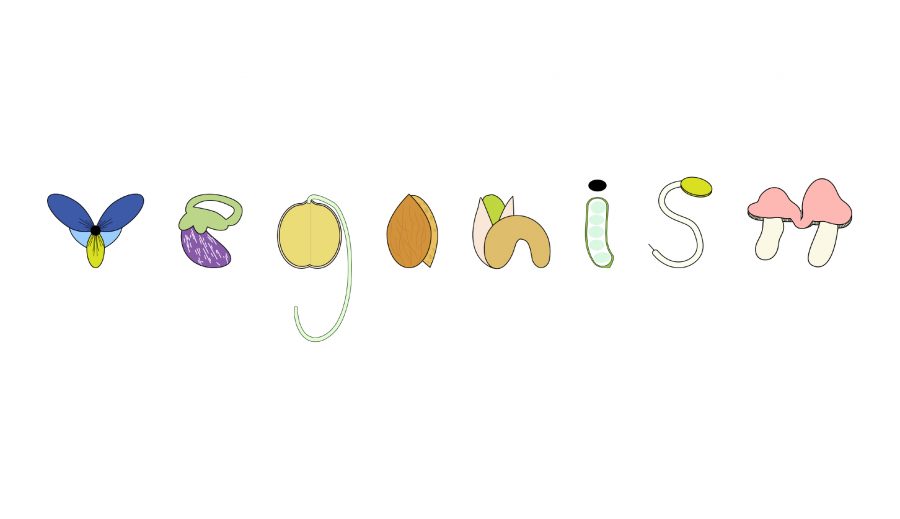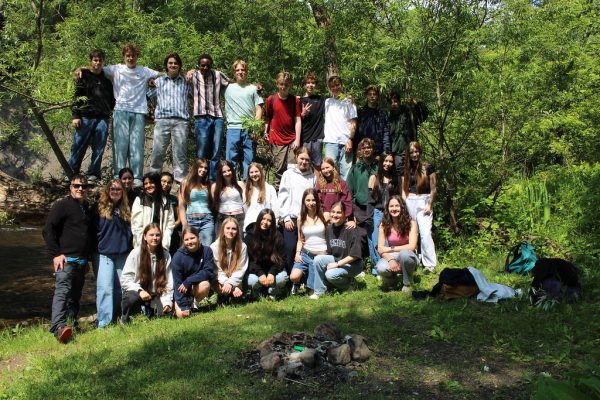Is Veganism Really Healthier?
Have you heard that Angelina Jolie almost got killed because of the vegan diet she was following? This being said, many people still assume, mostly because of what they hear and see on social medias and on TV, that diving into veganism is something that will miraculously turn them into healthier human beings. But is it really the case?
A vegan diet is characterized by the absence of animal products in a person’s daily alimentation. That means they don’t eat meat, eggs, cheese and don’t drink milk and many other products that come directly or not from animals.

This usually goes up to even checking twice before buying some kind of product, just to be sure they haven’t been tested on animals. Veganism is becoming quite a trend the last few months. It’s being promoted all over the internet as a ”lifestyle choice” and as a ”philosophy” more than a diet.
Obviously, there are many reasons why someone would want to cut meat out of his daily life. But for healthy reasons, I personally don’t think it’s the right and best way to go.
After doing some researches, I found that the people that are vegan are in need of many nutrients and vitamins essential to the proper functionning of the human body. Also, soy, an aliment vegans usually rely on to get proteins, is not as good for you as what you might think. Finally, there are no actual studies that show that eating meat, or animal products in general, is bad for you…
Let me explain my point and tell you 3 reasons (among many others) why you should, in my opinion, not turn vegan.
#1 : Humans are omnivore : we function best eating both animals and plants.
There are some nutrients that can only be gotten from plants and others that can only be gotten from animals… Vegan diets are almost completely devoid of certain nutrients that are crucials for psychological and physical function of the human body.
Vitamin A :
Contrarily to what you might think, you can’t get vitamin A from carrots : vegetables provide carotene, which is a precursor to vitamin A. In chemistry, a precursor is a chemical substance that gives rise to another more important substance. Some people believe that carotene can be converted into vitamin A but this conversion is usually insignificant. It would take a huge amount of carotene for a moderate amount of vitamin A. You can get this vitamin only from animal sources like liver and pastured eggs.
Vitamin D :
Vitamin D levels are 58% lower for vegetarians and 74% lower for vegans than for omnivores. It’s only found in animal products like pastured egg yolks, cod liver oil and in dairy products from grass-gazing animals. Some obscure species of mushrooms can provide large amount of vitamin D but those are rarely consumed, difficult to obtain and repulsive for humans. Mushrooms usually contain vitamin D2, which is different from vitamin D.
It regulates calcium metabolism, reduces inflammation and protects against some forms of cancer.
Vitamin A and D are both essentials for immune regulation, digestion, fertility and hormone balance.
Vitamin K2 :
This vitamin is essential for you because it transports calcium into your bones : you can consume as much calcium as you want but it won’t strenghten your bones unless it is accompanied by vitamin K2. Plants don’t provide K2 but you’ll get it in pastured egg yolks, milk and cheese from grassfed animals, liver, beef and chicken.
Vitamin B12 :
Vitamin B12 is by far the most important nutrient that vegans must be concerned with because it is, like all of the others above, only found in animal sources. It’s particularly important in the formation of blood and for the well functionning of the brain. 83% of vegans are B12 deficient, compared to 5% of omnivores. Some people might think that spirulina (a dietary supplement) and brewer’s yeast are a source of vitamin B12… But here’s what Chris Kresser, a globally recognized leader in the fields of ancestral health, Paleo nutrition, and functional and integrative medicine, has to say about that : «A common myth amongst vegetarians and vegans is that it’s possible to get B12 from plant sources like seaweed, fermented soy, spirulina and brewer’s yeast. But plants foods said to contain B12 actually contain B12 analogs, called cobamides, that block the intake of, and increase the need for, true B12.» Vitamin B12 deficency can cause some problems : fatigue, lethargy, weakness, memory loss, neurological and psychiatric problems, anemia, and many more…
There are other less known nutrients that are only found in animal products and that are critical for optimal function of the body : animal proteins (contain all the essentials amino acids, important for muscle mass and bone health), creatine (help to form an energy reservoir in cells, deficiency can have harmful effects on muscle and brain function), carnosine (protective against various degenerative processes in the body), just to name a few…
How do you expect your body to function well without all these essential nutrients? You may be thinking about taking supplements… But you could take as many supplements as you want, it won’t fill in the gaps as well as the real and natural sources of these nutrients. It isn’t something you should take for granted : there are dangerous consequences attached to the deficiency to certain nutrients and remember that you body is what keeps you alive… You should take care of it.
#2 : Vegan diets often rely heavily on soy.
Soybeans are legumes that originated in East Asia but they’re now being produced on a large scale in the United States. They are used in different foods : tofu, soy milk and various dairy, meat substitutes and fermented food like miso, natto and tempeh, commonly consumed in some Asian countries. Over 90% of soy produced in the U.S. in genetically modified and sprayed with pesticides and herbicides when growing.
There are many good things that you can get from soy but there are also many problems attached to consuming too much of it.
The more soy you eat, the more your hormones go crazy…
The principal concern when eating soy in any form is the phytoestrogen content. It kind of imitates estrogen in the body, causing a chain of hormone inbalances. Even though male have less estrogen in their body than female, phytoestrogen can lead to a testosterone inbalance, infertility, low sperm count and increased risks of cancers. For women, it can lead to estrogen dominance, which is linked to infertility, menstrual troubles and cancers. Along with that, a study showed that infants consuming soy formula had a concentration of blood estrogen levels up to 13,000 to 22,000 times higher than normal. It’s alarming.
Also, phytic acid in soy inhibits the body’s ability to absorb important minerals like zinc, calcium, iron and magnesium. This acid contained in soy cause less assimilation of nutrients, as well as contain trypsin inhibitors that can interfere with digestion.
Finally, soy is very difficult to digest and thyroid suppressive. Its consumption increases the body’s need for vitamin D, vitamin B12, calcium and magnesium, in which most vegans are already deficient.
Do you still want to put your body to the risk of becoming a vegan? Well, those were the big lines but remember that there are many other consequences… You can’t cut soy completely out of your alimentation and you’re probably eating much more of it now than what you can imagine, but reducing its consumption as much as you can is by far the best thing to do.
#3 : There is no scientifically valid health reason to completely eliminate animal foods.
How do you create cheese, milk and meat without cheese, milk and meat? By using a bunch of non-foods including stabilizers, gums, thickeners and highly processed protein extracts. Need proof to believe that? Have a look at this comparison between “normal” butter and some kind of vegan butter.

What are your thoughts? I’m personally not sure I want to put all these chemicals in my body if I can just have natural, traditionnal, good-for-my-body butter.
First, animal foods are not just healthy, but they’re extremely nutritious. They’re loaded with high quality proteins, healthy fats, vitamins, minerals and various less known nutrients that have important effects on health.
Also, some people want to cut meat out of their alimentation because there is a myth going on that unprocessed red meat is bad for you. It actually doesn’t have any association with cardiovascular disease or diabete and it doesn’t have any risk of death. Red meat has only a very weak link with an increased risk of cancer. This is probably caused by excessive cooking, not the meat itself.
Furthermore, saturated fat has never been proved to lead to heart disease and studies made on eggs show no negative effects either.
See? Nothing scientifically shows that you shouldn’t eat animal foods.
Finally, some might dive into veganism because they think it is cruel to take a life, but remember that something dies no matter what you eat : plants are living beings, capable of communicating with each other and the world around them. A study showed that, interestingly, plants can even sense and respond to humans’ emotions.
Nutritional therapist Liz Wolf summarizes that up perfectly in her book Eat the yolks : “If we truly believe that no living thing should have to die for our dinner, we shouldn’t eat at all. If we truly believe that all life deserves equal respect, why not equalize ourselves by embracing the elegant fact that we are all, as Nelson writes, driven by the same hungers that motivate any other creature – the squirrel in the forest, the vole in the meadow, the bear on the mountainside, the deer in the valley ?”
I completely understand that there are many reasons why someone would want to stop eating meat or animal products, whether it is for healthy, religious or any other issues. Obviously, veganism has its good sides. It forces you to vary your alimentation, it reduces the mercury level in your body (contained in fish mostly). Some vegans also stated that their skin and hair looked better and healthier.
In conclusion, I think it is just a question of point of view and a personnal choice. Some might only see the benefits of going vegan but others, just like me, tend to be more aware of the negative consequences that this type of diet can have on your body.
If you decide to go vegan, as Mary Lynch says on jamieoliver.com, remember to apply all the same principles that you would to any healthy balanced diet: eat plenty of different fruits and vegetables, whole grains, nuts, seeds, pulses, and limit sugary and fatty foods to ensure you’re getting all the nutrients that a vegan diet can lack.






